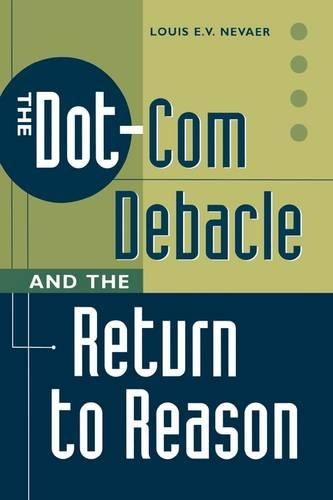
The Dot-Com Debacle and the Return to Reason
(Hardback)
Publishing Details
The Dot-Com Debacle and the Return to Reason
By (Author) Louis E.V. Nevaer
Bloomsbury Publishing PLC
Praeger Publishers Inc
28th February 2002
United States
Classifications
Tertiary Education
Non Fiction
Economic theory and philosophy
Business and Management
330.153
Physical Properties
Hardback
336
Description
Proof that the laws of classical economics have not been repealed, and that new opportunities for the creation of wealth are already emerging from the debris of the dot-com disaster. It was fashionable to believe that the laws of economics had been repealed, and in the decade of the nineties the result was a spectacular rush of money in search of more money. New rules applied, and if you hadn't made your second million by the time you were 30 you had missed the boat. Then the bubble burst. Dot-comers, so recently rich (at least on paper), found themselves scratching for jobs. Nevaer can now report, wryly, that we are still governed by the laws of classical economics, and in his briskly provocative new book he shows how the return of common sense is opening new opportunities for the creation of wealth in badly battered industries, entertainment foremost among them. He also points out that while the online economy is just a fraction of the total economy, it has important implications for the development and benefit of the whole of American society. Yes, there may still be a New Economy, but it is different from what it was first seen to be. It is clearly dependent on the real world, and its truly "real"--that is, sustainable--components are centered on five industries: publishing, music, video games, and to some dismay, gambling and adult entertainment. Nevaer says that other industries too will rise from the debacle or be newly created. They too will provide means for personal financial gain, but they will also carry bold new opportunities to advancethe common good. Nevaer's book applies the fundamental ideas and theories of classical economics to the world online. It provides a concise understanding of what properly belongs to the Old Economy and what belongs to the New Economy. Nevaer shows that there are characteristics of the New Economy that create market imperfections, which in turn create market failures. The dot-com debacle may be understood within the framework of classical economics, and can thus be seen as inevitable. Nevaer explains that while the Internet offers the technology to expand existing markets, it also allows market imperfections to proliferate and infect the entire economy, and this in turn has a negative impact on the Old Economy. Then too, the online economy will also produce undesired social outcomes. Indeed, it facilitates pathological consumer behavior--but the potential for more beneficial gains is still indisputable. Nevaer covers the five industries that make up the maturing, sustainable online economy in detail, with the insights of not only a schooled economist but also an astute observer of American culture and society.
Reviews
[c]learly written and engaging.-Harvard Business School Working Knowledge
[c]learly written and engaging.Harvard Business School Working Knowledge
"clearly written and engaging."-Harvard Business School Working Knowledge
"[c]learly written and engaging."-Harvard Business School Working Knowledge
Author Bio
LOUIS E. V. NEVAER is an economist, entrepreneur, consultant, editor, and formerly a publisher of newsletters for top management in international finance.
